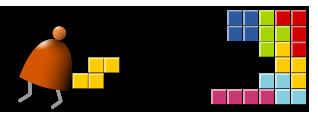| Learn By Building Your Own Computer |
| Written by Mike James | |||
| Sunday, 07 October 2012 | |||
|
Seven years ago, Shimon Schocken and Noam Nisan organized what was perhaps the first MOOC. In their groundbreaking course, From NAND to Tetris, students were challenged to build a modern computer starting from logic gates.
How better to really understand how computers work - build one from scratch. It's not a new idea but ironically it gets harder as each year goes by to get down to the lower levels and implement things from the simplest hardware. This is the story that a recent TED talk told, and it launched perhaps the very first of the Massive Open Online Course (MOOC). "Shimon Schocken and Noam Nisan developed a curriculum for their students to build a computer, piece by piece. When they put the course online, giving away the tools, simulators, chip specifications and other building blocks, they were surprised that thousands jumped at the opportunity to learn, working independently as well as organizing their own classes in the first Massive Open Online Course (MOOC). A call to forget about grades and tap into the self-motivation to learn." The course starts from a basic NAND gate and works its way up to a computer that can play a game of Tetris. You start from fundamental logic gates, build adders, work your way up to a simple machine, implement a language and an operating system. You can view the TED talk below - if you want to skip straight to the main part of the talk, it start at around 5 mins in:
If you find this talk too philosophical and would really like to find out what the course is about then try the 12-step sampler video: You can download and use any of the course material and there are lectures and software simulators to get you going.
More InformationRelated ArticlesGetting Started With Digital Logic - Logic Gates Google Launches Course Builder MOOCs Fail Students With Dark Age Methods More Online Educational Platforms Mechanical MOOC Offers Introductory Python Khan Academy Launches New Introductory Computer Science Curriculum Daphne Koller What We Are Learning From Online Education Peter Norvig On The 100,000-Student Classroom
Comments
or email your comment to: comments@i-programmer.info
To be informed about new articles on I Programmer, install the I Programmer Toolbar, subscribe to the RSS feed, follow us on, Twitter, Facebook, Google+ or Linkedin, or sign up for our weekly newsletter.
|
|||
| Last Updated ( Thursday, 11 April 2019 ) |



